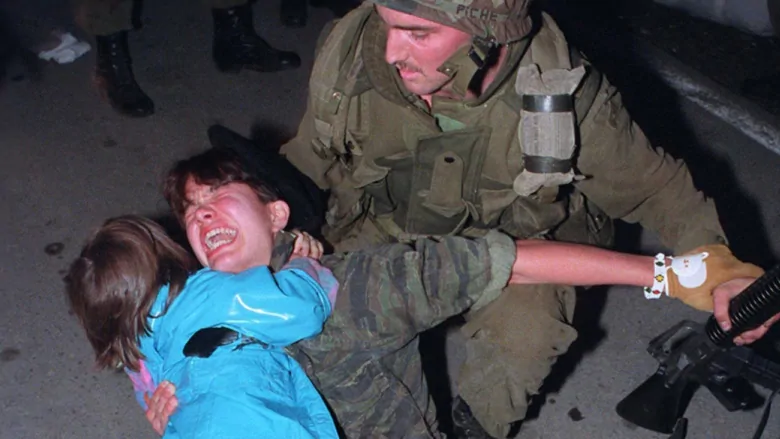Protesters standing face-to-face with armed officers from the national guard – Canadian Olympian Waneek Horn-Miller has been there, and is reminding Canadians how real racism is in this country.

Protesters standing face-to-face with armed officers from the national guard – it’s a jarring yet all-too-familiar scene playing out across the U.S. on a nightly basis right now, as thousands take to the streets demanding systemic change in the wake of George Floyd’s death at the hands of police.
Canadian Olympian Waneek Horn-Miller has been there before and is reminding Canadians how real racism is in this country.
“Canadians are polite racists. They don’t want to acknowledge there is that privilege,” Horn-Miller told CBC Sports.
“When we’re talking about racism in Canada, it’s not like what you face in the United States. It’s more subtle. It’s the indifference. It’s the insensitivity. Or people saying they don’t see colour.”
This summer marks 30 years since Horn-Miller spent 78 consecutive days on the front lines of resistance during the Oka Crisis.
In the summer of 1990, the town of Oka, Que., planned to expand a golf course without consultation onto a piece of land the locals call The Pines. The land is sacred to the Mohawk, who were opposed to the expansion because it is where their people are buried.
A Mohawk from Kahnawake, Que., Horn-Miller was just 14 years old when she was tasked with cooking midnight meals and breakfast to take to the warriors who were in the bunkers. She vividly remembers the escalating tensions between protestors and police – and then the military was brought in.
“It was such a horrific misuse of the military. I’ve met people on both sides who are still traumatized from that to this day,” Horn-Miller said.
“I’d be looking down the barrels of hundreds of guns. I can’t help but think about that as I watch today. Thinking about the national guard being sent in.”
WATCH | Canadian athletes speak out against racism:
Canadian athletes have been speaking out against racism and for change, including tennis youngster Felix Auger-Aliassime, basketball legend Steve Nash, and Olympians Kia Nurse, Karina LeBlanc and Perdita Felicien 2:38
On the evening of Sept. 26, the last night of the crisis, Horn-Miller made her move to escape the area. She was trying to reach the media barricade that had been moved, fearful that if she didn’t reach the cameras in time, soldiers may harm her.
They did.
Horn-Miller was stabbed in the chest by a soldier’s bayonet while racing her four-year-old sister, Kaniehtiio Horn, to safety. The bayonet missed her heart by a centimetre.
“I looked at one of the soldiers and I said, ‘I know you.’ I pointed at him and put my four-year-old sister behind my back to protect her and that’s when I got hit in the chest,” Horn-Miller recalled, fighting back tears.
“I was in such anger and pain and sadness and rage. I thought my body was going to explode.”
Horn-Miller didn’t receive medical treatment for 22 hours, held captive inside a bus in a makeshift military base.

